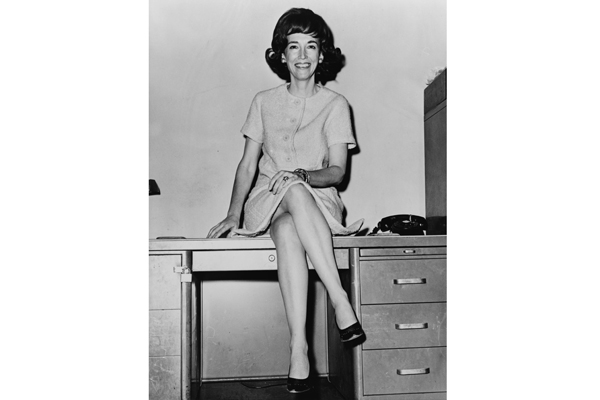Helen Gurley Brown, Sexy to the End
 Photo courtesy of Library of Congress/John Bottega
Photo courtesy of Library of Congress/John Bottega
Helen Gurley Brown, the longtime head of Cosmopolitan magazine, died yesterday at age 90. She was a sashaying spark plug of an editor who was comfortable with her sexuality and more importantly, encouraged American women to feel the same (tens of thousands of sex tips later, how many of us may have been conceived with her help?) Today, Cosmo is the best-selling monthly magazine in the United States, and it’s a powerhouse worldwide, as there are now 64 international editions published in places as far flung as Azerbaijan and Mongolia.
Brown was tapped to head Cosmo after penning the bestselling book Sex and the Single Girl, a tome which celebrated bachelorette lifestyle in the early ’60s—it was “Sex and the City” while Carrie Bradshaw was still in diapers. And her 30 years at the magazine’s helm ushered in her own brand of feminist empowerment, albeit a neon-pink, mini-skirted version that often encouraged a woman to use her sexuality to get ahead. She drew ire from feminist icons like Gloria Steinem, who argued that her flip, Holly Golightly attitude about issues did more to undermine the women’s movement than help it. Betty Friedan went so far as to call Cosmo “quite obscene and quite horrible. It embraces the idea that a woman is nothing but a sex object.”
“Ms. Brown routinely described herself as a feminist, but whether her work helped or hindered the cause of women’s liberation has been publicly debated for decades,” the New York Times wrote in her obit. “It will doubtless be debated long after her death.”
That’s for sure. Sex and the Single Girl was cited numerous times in my research for my Single By Choice story, as many of the women I had interviewed either had grown up with Brown’s influence, or found the book on their own. One of Brown’s other books, Having it All, is still an idea women are trying to define, as the Atlantic‘s recent cover story has spawned enough debate to garner its own Twitter hashtag. But whether you see Brown as a leopard-print clad vixen or a flag-waving feminist doesn’t matter as we look back in the wake of her death. She was comfortable in her own skin, encouraging generations of women to better know and enjoy their bodies. She was an executive when few women had such authority. And she was a voice at a time when women weren’t encouraged to speak their minds. Luckily, she spoke up.

